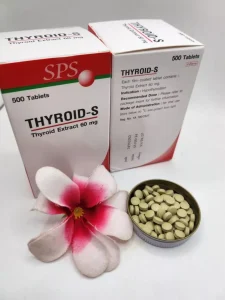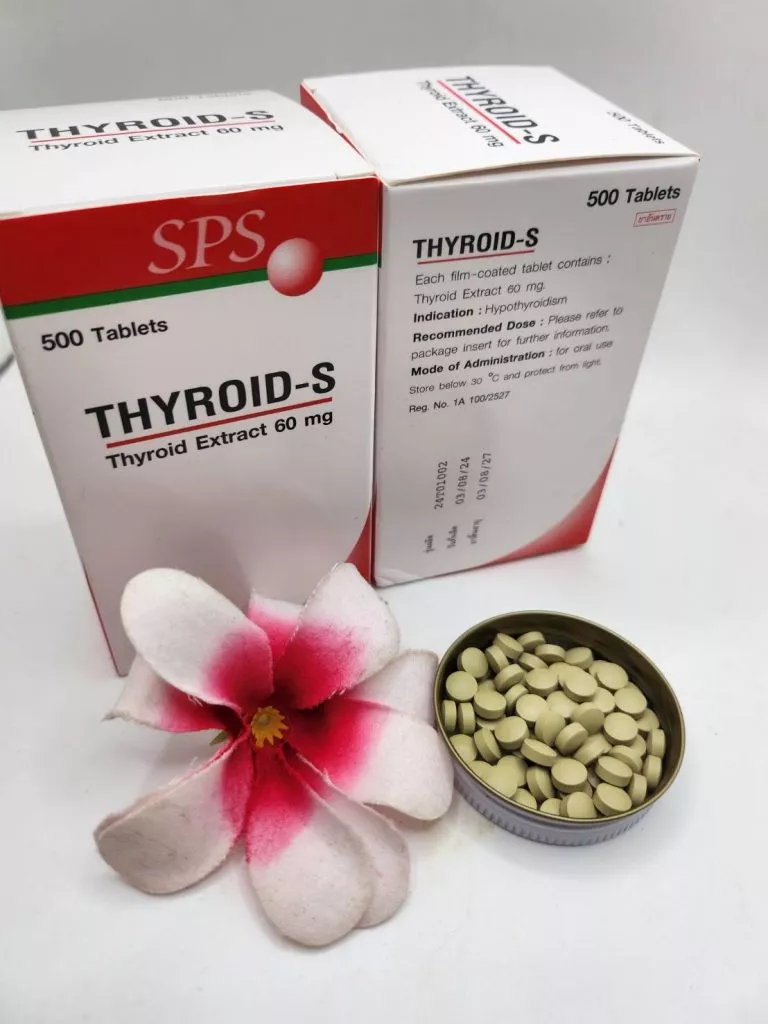Your basket is currently empty!
What is Thyroid-S? Understanding This Popular NDT Option
Hypothyroidism treatments vary widely, but some patients prefer Natural Desiccated Thyroid (NDT). NDT, a biological product from pig thyroid glands, offers both thyroxine (T4) and triiodothyronine (T3), crucial thyroid hormones. In this post, we explore NDT as a hypothyroidism treatment option. We will discuss its benefits, address potential concerns, and stress the need for medical guidance.
Understanding Natural Desiccated Thyroid Composition
Pig thyroid glands provide the foundation for NDT, mirroring the hormone output of the human thyroid with T4 and T3. Patients who don’t respond well to synthetic levothyroxine, a common T4-only medication, often consider NDT. It might offer them a solution when standard therapy doesn’t relieve their symptoms.
Why Some Patients Choose NDT
The appeal of NDT lies in its combination of T4 and T3 hormones, with T3 being the active form that directly affects metabolism. Some patients have difficulty converting T4 into T3, leading to persistent symptoms. NDT’s inclusion of both hormones makes it an attractive option for them.

More info on Thyroid-S ingredients
Important Note on Dosage Conversion from T4 to NDT
It’s crucial to understand that dosages between synthetic T4 medications and Natural Desiccated Thyroid (NDT) are not equivalent. For example, switching from 100mcg of levothyroxine does not mean taking 100mg of NDT. NDT contains both T4 and T3, and the presence of T3 makes it significantly more potent. Attempting a direct dosage match without medical oversight can lead to symptoms of overmedication or under-treatment. Always work closely with a knowledgeable healthcare provider when transitioning therapies — especially with combination hormone treatments like NDT.
Addressing NDT Controversy
Despite its popularity among patients, NDT faces skepticism in the medical field. Critics point out the batch-to-batch variability in hormone concentrations and the unorthodox T4 to T3 ratio. These factors can result in inconsistent dosing and potentially excessive T3 levels, which may cause side effects.
The Importance of Professional Medical Advice
The complexities and debates around NDT highlight the need for medical consultation. Patients should consider their symptoms, response to current treatments, health status, and preferences when discussing NDT with healthcare providers.
Conclusion: Weighing the NDT Option
NDT presents an alternative for managing hypothyroidism, but it comes with its own set of controversies. Making an informed choice with a healthcare provider’s input is vital. The end goal is to enhance overall health, not just manage thyroid levels.
Ingredients of Thyroid S Below:
For more insights on NDT, refer to the American Thyroid Association’s detailed resources.
Is Thyroid S NDT the right choice for me?:
listen to our podcast which could help you to make a well informed decision!

